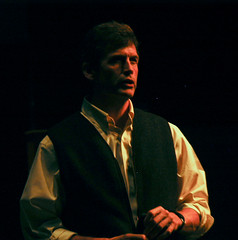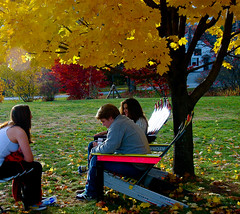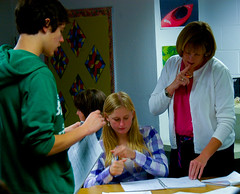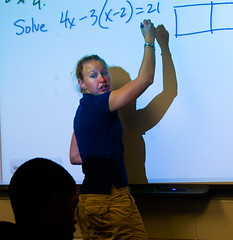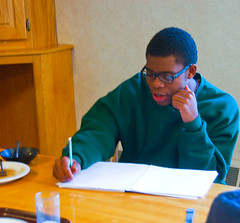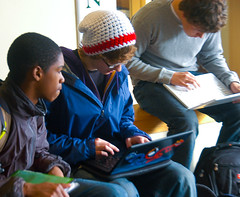For the past fifteen years, faculty and students have created
ad hoc committees called "study groups" to investigate and advance a wide range of topics: the role of sports, adolescent males, health, residential life, etc.
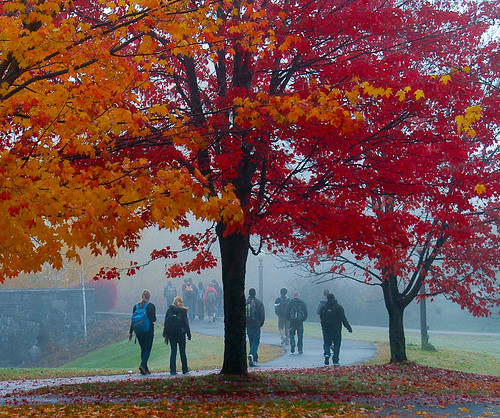
A study group at work this fall is considering the community's
awareness of student achievement.
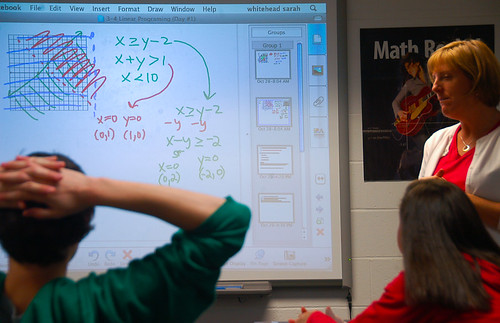
Named "Life of the Mind," the study group isn't measuring the
quantity of student achievement. Those of us who roam in and out of classrooms are fully aware of the miraculous stuff kids are doing through hard work.
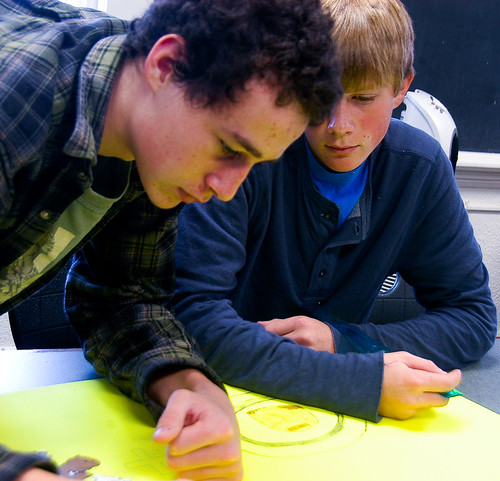
In a presentation to the faculty Tuesday evening, they asked us to consider the
currency of academic achievement within the community, and ways that we can always elevate and advance that currency.
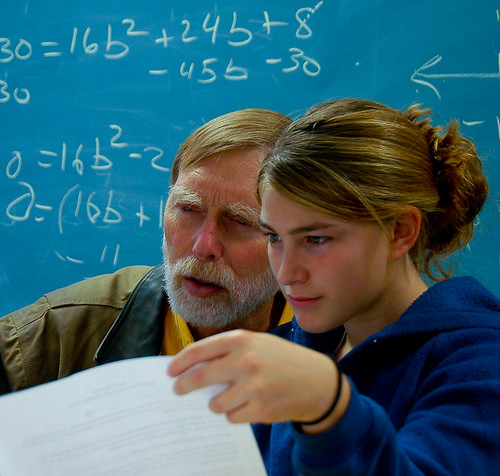
We can always be more purposeful in our communication, such as this blog site, in conveying the very best of our students' work. Notice, too, the critical role of teachers, as they communicate passion for success. This is a math extra help table at breakfast:
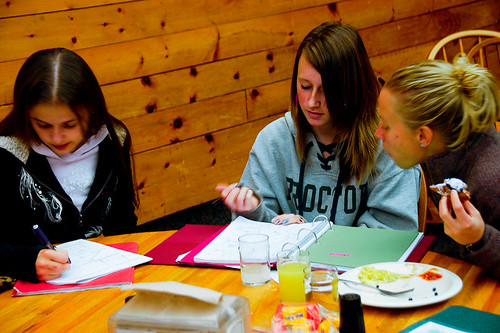
We cultivate internalized motivation when students feel that what we're doing is truly
important. And it is important.

Pride in academic achievement--the kind of pride you share with friends--isn't an inherited characteristic for teenagers. In fact, kids can protect fragile egos by saying (at least to oneself,) "I could have tried harder." We can't tolerate that here.
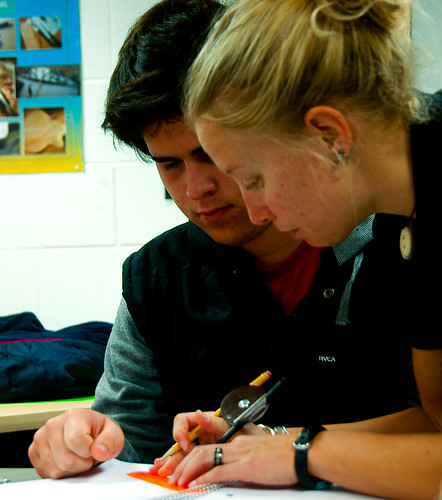
On the walkway to assembly this morning, I heard students congratulating one another for nailing a math test. Their teacher is someone who demands the rapt attention of every student in the classroom by calling frequently on students, assuring them they'll "get it," and even shouting "I love you!" when they respond correctly.
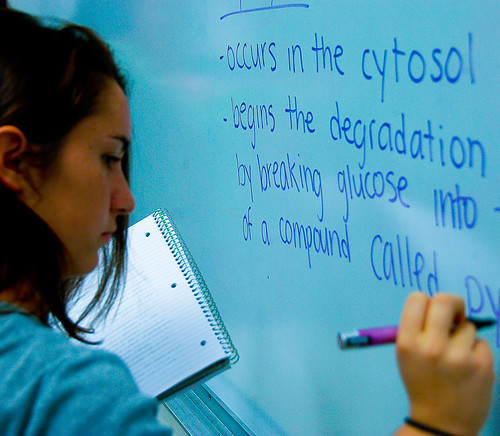
That's a teaching style that yields student pride in achievement.

















